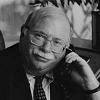- 02 Apr 2012 20:21
#13930578
As I understand it, Libertarians are generally opposed to price fixing. But what is their stance on monopolies? Many of the policies put forward by Libertarians seem to, on their face, support the creation of monopolies, even though monopolies in my mind act as the origin of price fixing situation.
And then there is another issue that I would like to go into. There was this great segment on the Colbert Report where they featured a guy who had invented a device that shuts down a buzz saw when it starts cutting something softer than wood. The guy demonstrated how this could save people from accidentally losing their fingers because the device works amazingly well, even if there is also wood being cut at the same time. He put a sausage on the wood and as soon as the sausage began getting sliced the saw stopped and retracted into the device.
Unfortunately, the buzz saw making companies all got together and argued that they shouldn't have to sell saws with this feature. Normally I would be up for saying, let's allow the free market to sort this out, evolution will favor those who want fingers over those who don't. But because all of the companies got together to kill this invention, no choice to buy the safer buzz saw makes it to the consumer in the first place. This was not even a true monopoly, just a collusion of businesses working together to decrease consumer choices for their mutual profit.
How would a Libertarian prevent monopolies (if they want to) and, if they would care to, how would a Libertarian prevent instances like my above example from occurring, where consumer choice is being limited even in the absence of a true monopoly? Can the free market work if business entities can freely limit consumer's choices?
And then there is another issue that I would like to go into. There was this great segment on the Colbert Report where they featured a guy who had invented a device that shuts down a buzz saw when it starts cutting something softer than wood. The guy demonstrated how this could save people from accidentally losing their fingers because the device works amazingly well, even if there is also wood being cut at the same time. He put a sausage on the wood and as soon as the sausage began getting sliced the saw stopped and retracted into the device.
Unfortunately, the buzz saw making companies all got together and argued that they shouldn't have to sell saws with this feature. Normally I would be up for saying, let's allow the free market to sort this out, evolution will favor those who want fingers over those who don't. But because all of the companies got together to kill this invention, no choice to buy the safer buzz saw makes it to the consumer in the first place. This was not even a true monopoly, just a collusion of businesses working together to decrease consumer choices for their mutual profit.
How would a Libertarian prevent monopolies (if they want to) and, if they would care to, how would a Libertarian prevent instances like my above example from occurring, where consumer choice is being limited even in the absence of a true monopoly? Can the free market work if business entities can freely limit consumer's choices?


















 I do see the irony though. They need to be in the government to actually get out of it.
I do see the irony though. They need to be in the government to actually get out of it. 






 - By wat0n
- By wat0n